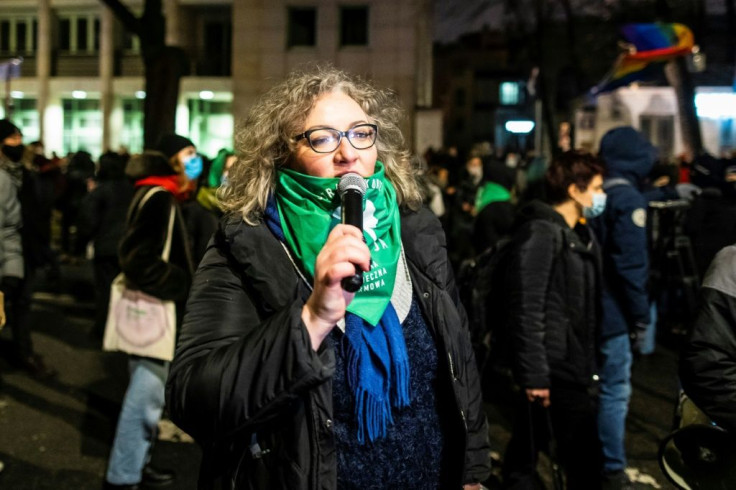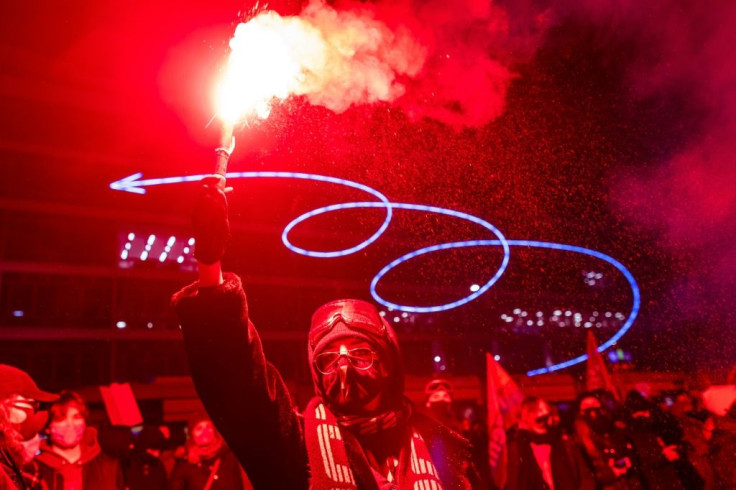Polish Pro-choice Protest Leader Charged, Risks Jail
One of the organisers behind mass protests against a tightening of abortion laws in Poland has been charged and faces up to eight years in prison, the prosecutor's office said Thursday.
Marta Lempart has been charged with organising demonstrations in breach of coronavirus restrictions, insulting the police and voicing support for attacks on churches, a spokeswoman for the prosecutor's office said.
"She faces up to eight years in prison," Aleksandra Skrzyniarz told AFP.
Lempart has pleaded not guilty to the charges and has refused to testify.
Speaking to the news portal Onet, Lempart hinted that the charges could be used against more protest participants, saying they were "a mixture of different things which will affect many other people",

She also told Gazeta Wyborcza that prosecutors were using a "new mechanism" by charging her under the criminal code instead of a code for petty offences.
The new US administration of President Joe Biden, who has vowed a vigorous defense of democracy and backs abortion rights, said it was watching the case closely and believed in the right to peaceful protest.
"The charges today, I think, are part and parcel of a constricting space for civil society within Poland," State Department spokesman Ned Price told reporters, also pointing to a proposed media tax that critics say will stifle independent outlets.
Calling Poland a "valued NATO ally," Price said the United States was "committed to strengthening our partnership with Poland and advancing the administration's commitments to supporting democratic institutions, human rights and the rule of law."
Polish President Andrzej Duda had been a close ally of former US leader Donald Trump.

Lempart is one of the organisers behind the Women's Strike movement, which has coordinated nationwide demonstrations over reproductive rights that have become anti-government protests.
Many people detained by police during the protests and charged with petty offences have since been acquitted.
The demonstrations began after the Constitutional Court in October issued a ruling imposing a near-total ban on abortions, except in cases of rape and incest and when the mother's health is considered to be in danger.
A new wave of protests started last month when the ruling was published, giving it legal force.
Some of the participants wore green handkerchiefs around their necks -- the symbol of abortion rights activists in Argentina, which legalised abortion in December.
A predominantly Catholic country, Poland already had one of Europe's most restrictive abortion laws.
Until the most recent ban, fewer than 2,000 legal abortions were carried out in Poland every year.
Women's rights groups estimate that each year 200,000 Polish women either abort illegally or travel abroad for terminations.
The court ruling found that abortions in cases of foetal abnormalities were "incompatible" with the constitution.
The government says the ban will halt "eugenic abortions", referring to the termination of foetuses diagnosed with Down's Syndrome, but human rights groups say it will force women to carry non-viable pregnancies.
© Copyright AFP 2024. All rights reserved.





















